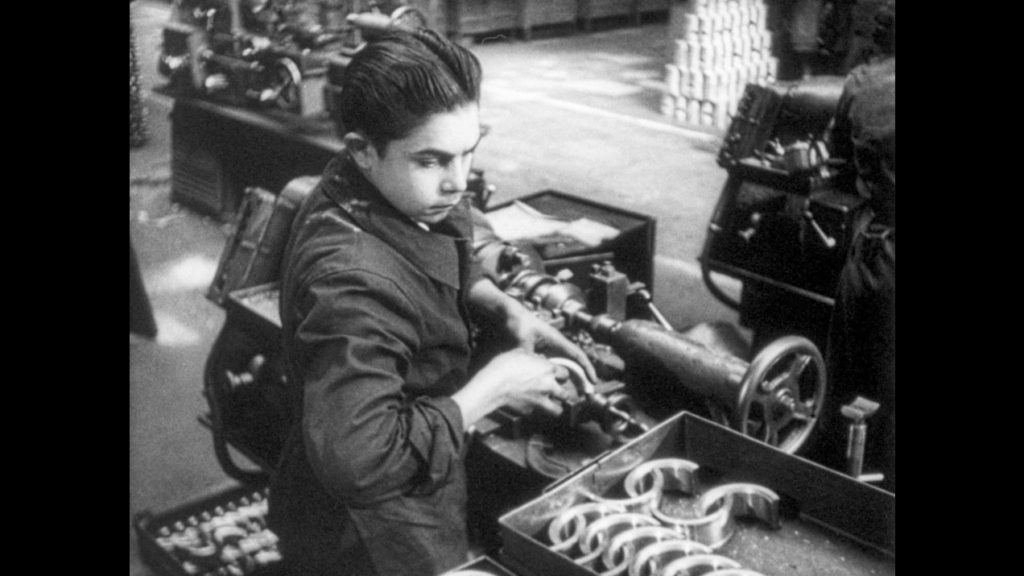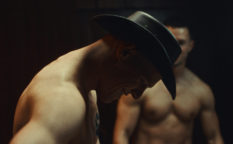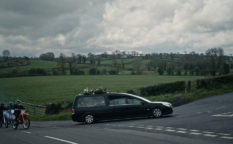Retour à Reims (2021)

Didier Eribon is a French philosopher, sociologist and author whose autobiographical non-fiction book Returning to Reims blends the history on the bigger scale of the society with personal history and histories within the family. The film adaptation of it in the hands of the master documentarian Jean-Gabriel Périot (known for A German Youth and Our Defeats) premiered this year at Cannes’ Directors Fortnight before hitting the festival on which it made stops at San Sebastian, New York Film Festival, Busan, Viennale, Ji.hlava and IDFA among others. It also played parallelly at Human Rights Film Festival in Zagreb and Pravo Ljudski Film Festival in Sarajevo.
In his film adaptation, structured in two movements with an epilogue, Périot ditches the significant chunks of the book, like the author’s sexuality and the rift it made with his father, in order to focus on another aspect, the history of the working class in France in the 20th century, enlisting the help of Adèle Haenel (of Portrait of a Lady on Fire and The Unknown Girl fame) as a narrator. Truth to be told, it is signalled in the title itself, by putting the word Fragments in the bracket, but those familiar with the book might still feel a bit cheated with the film adaptation. On the other hand, the abundance of material and ideas that work perfectly on book pages would not work that well in film.
After the prologue, a shot of the street in the working class area of the titular city, the first movement deals with the history of the Franch working class in the period from the 30s till the 50s (it is worth noting that Eribon was born in 1953) through the prism of the author’s parents and grandparents and their lives. His maternal grandmother gave birth to his mother outside the wedlock when she was 17, and for that trespass she was kicked out of the house by her father and sentenced to the life of a streetwalker. She eventually had four children, and all of them were raised in the orphanage, since she also spent some time at the work camp in Germany during the WW2 (and got her had shaved in order to be shamed for having a relationship with a German soldier in the vindictive act afterwards). His mother learned the “craft” of the housemaid and she was forced to endure sexual harassment from her bourgeois bosses.
From the author’s paternal side, both his grandfather and father were typical proletarians who were “encouraged” to leave school and start working early on, at the age of 14, exposing the school system as the hotbed of the class divide in France, with upper class kids getting their secondary and university education, while the farmers’ and working class kinds leaving the system after the elementary. Some other topics from the book, like the question of the public housing, the gender roles, the underlying chauvinism that puts the working woman to shame and the illegal abortions, find their way to the film’s first movement.
The second movement is more focused to the “big picture” history of the second half of the 20th century and the role of the labour in it, but Périot also uses some of Eribon’s family history as an opening line. Namely, the author’s family members were communists and the first-hand witnesses of the decline of the party and the leftist movement as a whole. The questions of decolonization, immigration and integration arise, as well as the questions of the race divide and its later use as a political tool for the right wing parties to attract the working class voters who got disappointed in the socialists. The epilogue of the whole film extends the story to the recent events of the Yellow Vests protests and climate strikes, signalling that the struggle continues, despite all the efforts from the ruling ones to make it look futile.
Returning to Reims (Fragments) is a philosophical and sociological film-essay and basically a collage of some newly shot and the archival material from different sources that includes excerpts from fiction and documentary films, journals, TV news and political talk shows, while the original musical score by Michel Cloup and Haenel’s narration serve as the connective tissue. Périot is a master director and even better editor in both senses of the word: in the narrower, filmmaking craft aspect, his sense of continuity is spot on despite the enormous variety of material and its technical formats, while in the wider sense of the word, he chooses the best and the most fitting material available in order to tell a complex story in a visually arresting manner that leaves the lasting impression and offers some orientation options in these uncertain times.
Original title: Retour à Reims (Fragments)
Year: 2021
Runtime: 84’
Country: France
Language: French
Directed by: Jean-Gabriel Périot
Written by: Jean-Gabriel Périot (based on the book by Didier Eribon)
Narrated by: Adèle Haenel
Cinematography by: Julia Mingo
Editing by: Jean-Gabriel Périot
Music by: Michel Cloup
Sound by: Yolande Decarsin
Documentalist: Emanuelle Koenig
Produced by: Marie-Ange Luciani
Production company: Les Films de Pierre
Co-production companies: Arte France Cinéma, INA
Supported by: CNC, PROCIREP, ANGOA
Sales by: The Party
















